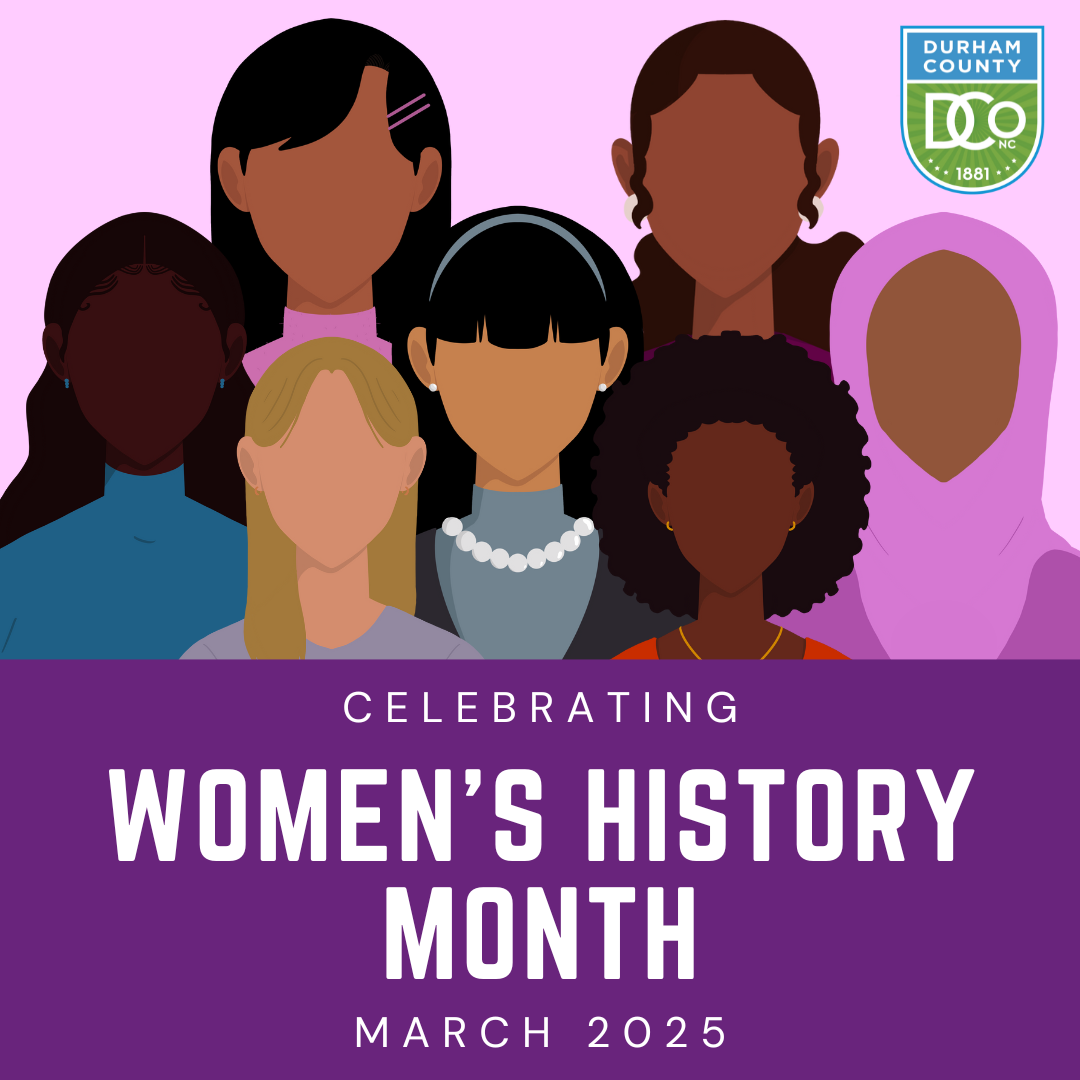March: Women's History Month

Women’s History Month is celebrated across the United States every March, highlighting the contributions that women have made to our society in every field and the work we still need to do to create equity in women’s experience and stories. Whether you identify as a woman or an ally, join us in connecting, learning, and doing to honor and celebrate women this month.


Equitable Well Being Activity
Cassandra Kiger, Equitable Well-Being Manager, led a group discussion between 5 DCo female employees from 4 different DCo departments about their experiences as women in their professions, how other women and allies have or could support them, and what advice they would give to their younger selves. Watch and listen now at: https://youtu.be/f3B_W_i2qgs. Any DCo employee who 1.) watches the recording, and 2.) completes the survey, qualifies themselves in the raffle to win one of two tickets to the 2025 Take No Bull Women’s Conference in Durham. DCo employees who are also Members of the Women in Public Safety Employee Resource Group, if you complete the steps above you will be entered for a raffle for an additional 2 tickets to the conference! To be an official WPS Member you must have completed the ERG Membership Request Form.

Connect
You can find local and national partners who have Women’s History Month programming and information to help you learn more. Check out partners like UNC Chapel Hill, the Duke University Women’s Center, UNC Charlotte’s Office of Global Education and Engagement, and more to learn about how women have impacted our city, county, and country. Young people and adults alike can also check out books, media, and programs at our local Durham County Library as well!

Learn
All human beings have bias, but it is important that we recognize how bias impacts our decisions. Does bias impact your ability to solve this riddle? Take a closer look at whether you have any bias around your concept of women by taking any of the three gender related tests in the Harvard University Implicit Project. One thing that can change our bias is simply getting more accurate information. Learn more about how our local community has been shaped by women by taking the in-person or virtual “walking tour” of Women’s History at UNC Chapel Hill, or visiting the virtual exhibit Votes for Suffrage: 100 Years of Women in Durham Politics (adobe.com). Take time to read Half the Sky by Kristof and WuDunn to learn about how the world could be changed economically if women were given equal opportunity to be engaged. Check out how bias and discrimination against women is a part of one of our fundamental decision-making tools, data collection and analysis, in the book Invisible Women by Criado Perez. If you prefer a movie, watch On the Basis of Sex (2018), a film outlining the life and impact of Ruth Bader Ginsberg and her impact on women’s basic rights to things such as owning a credit card and signing a mortgage.

Do
Part of learning about Women’s History is to keep growing our understanding about the rich and intersectional experiences of women. Find female authors, directors, storytellers, creators, scientists, and more, and listen to their stories. You could try books like The Vanishing Half (Bennett), Bad Feminist (Gay), Brown Girl Dreaming (Woodson), movies and shows like The Woman King (2022), Ms. Marvel (the TV show on Disney+), or Girl (2018). If you want to look further into intersectionalities from last month (Black History Month) combined with Women’s History Month, check out Hidden Figures (2016). Find out how you can connect with other resources and leaders through the National Women’s Alliance, the National Women’s History Museum, and the National Conference for Women.

Discuss
Here are some questions to start conversations with others about Women’s History Month. For leaders, try building in time in supervisions or team meetings to prompt staff conversations about Women’s History Month. Options could include:
- Did you learn anything new about Women’s History this month?
- Have you made any new personal or professional connections this month that can help you support women?
- Did you learn anything new about Women’s History or the experience of female-identifying people this month?
- How did you participate in Women’s History Month?
- How can things you learned or did for Women’s History Month impact how you do your job?


